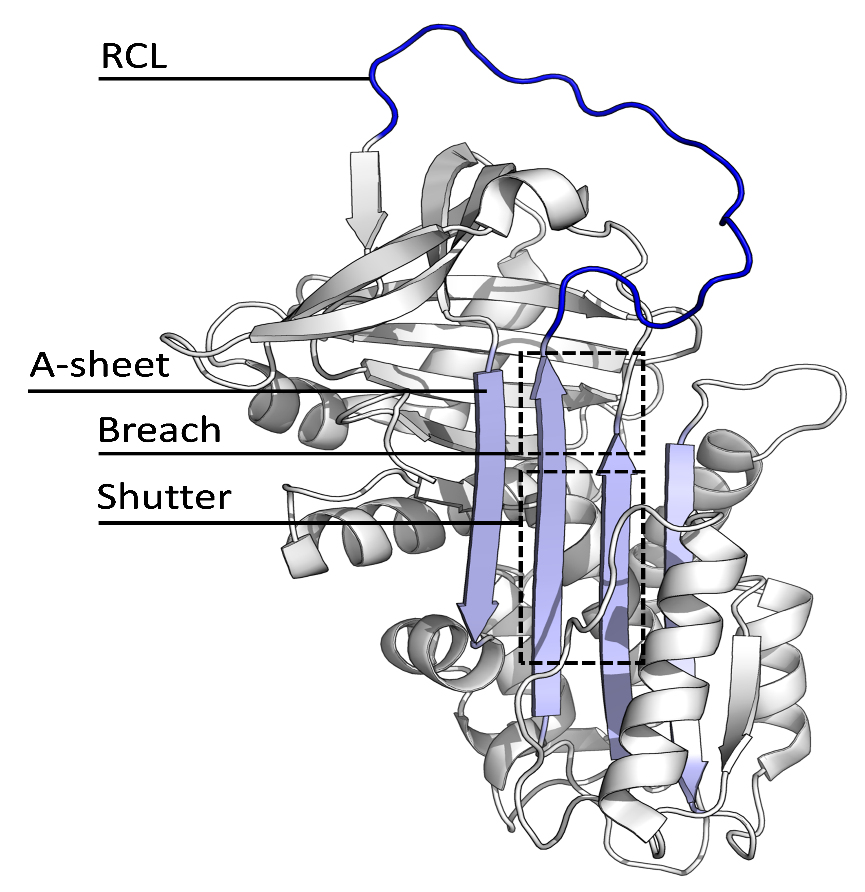
The human protein $\alpha - 1$ antitrypsin is obtained from
(A) Transformed bacteria
(B) Transgenic animal
(C) Transgenic plant
(D) A plant from Western Ghats
Answer
584.4k+ views
Hint: $\alpha - 1$ antitrypsin is a human protein and its deficiency may lead to the disease in the lungs and the livers. And it is the inherited disorder that may transfer from one generation to the other generations through the genes from parents to offspring.
Complete step by step answer:
$\alpha - 1$ Antitrypsin is the human protein that protects the lungs. It is produced by the action of the liver. In case of any inherited disorders, the protein cells of $\alpha - 1$ antitrypsin produced in the liver is not in the regular shape and so it is stuck in the liver body and it does not reach the lungs. Hence it causes diseases and malfunctions to both liver and lungs. In order to overcome this disorder, the transgenic sheep was developed. This is done by the process of genetic modification of the correct gene in the genome of the sheep. The sheep thus developed, produces the milk rich in $\alpha - 1$ antitrypsin which is used for the treatment of the liver and respiratory problems. Hence the human protein $\alpha - 1$ antitrypsin is obtained from the transgenic animal.

So, the correct answer is “Option B”.
Note:
This deficiency of the $\alpha - 1$ antitrypsin is found by taking the blood test. This reveals the amount of $\alpha - 1$ antitrypsin protein available in the body. There is no cure for this $\alpha - 1$ antitrypsin deficiency disease but the augmentation therapy can protect the lungs but it may also lead to slow lung damage.
Complete step by step answer:
$\alpha - 1$ Antitrypsin is the human protein that protects the lungs. It is produced by the action of the liver. In case of any inherited disorders, the protein cells of $\alpha - 1$ antitrypsin produced in the liver is not in the regular shape and so it is stuck in the liver body and it does not reach the lungs. Hence it causes diseases and malfunctions to both liver and lungs. In order to overcome this disorder, the transgenic sheep was developed. This is done by the process of genetic modification of the correct gene in the genome of the sheep. The sheep thus developed, produces the milk rich in $\alpha - 1$ antitrypsin which is used for the treatment of the liver and respiratory problems. Hence the human protein $\alpha - 1$ antitrypsin is obtained from the transgenic animal.

So, the correct answer is “Option B”.
Note:
This deficiency of the $\alpha - 1$ antitrypsin is found by taking the blood test. This reveals the amount of $\alpha - 1$ antitrypsin protein available in the body. There is no cure for this $\alpha - 1$ antitrypsin deficiency disease but the augmentation therapy can protect the lungs but it may also lead to slow lung damage.
Recently Updated Pages
Master Class 11 Computer Science: Engaging Questions & Answers for Success

Master Class 11 Business Studies: Engaging Questions & Answers for Success

Master Class 11 Economics: Engaging Questions & Answers for Success

Master Class 11 English: Engaging Questions & Answers for Success

Master Class 11 Maths: Engaging Questions & Answers for Success

Master Class 11 Biology: Engaging Questions & Answers for Success

Trending doubts
One Metric ton is equal to kg A 10000 B 1000 C 100 class 11 physics CBSE

There are 720 permutations of the digits 1 2 3 4 5 class 11 maths CBSE

Discuss the various forms of bacteria class 11 biology CBSE

Draw a diagram of a plant cell and label at least eight class 11 biology CBSE

State the laws of reflection of light

Explain zero factorial class 11 maths CBSE




